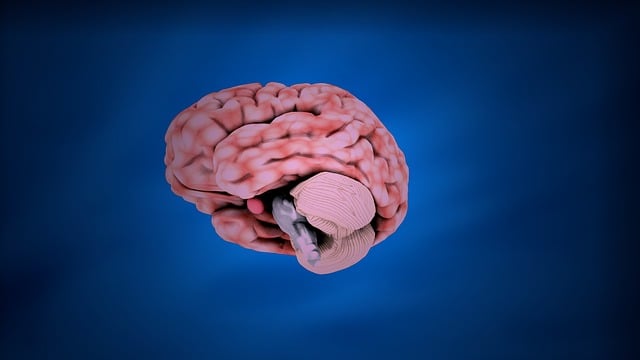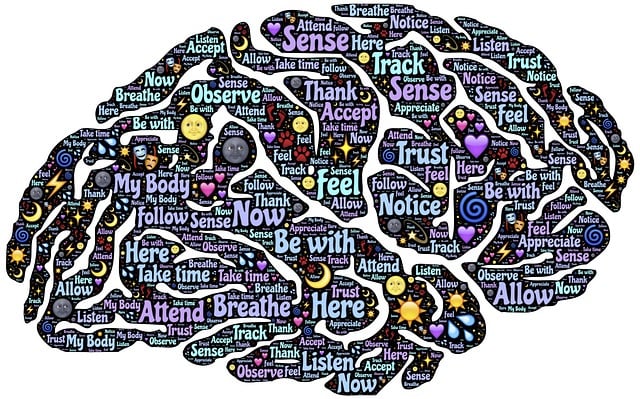Early recognition of depression signs is key for prevention and treatment. Symptoms include persistent sadness, changes in appetite/sleep, fatigue, and thoughts of worthlessness. Seeking help from healthcare providers promptly allows for interventions like psychotherapy or medication. Littleton Grief Counseling Therapy offers specialized services, focusing on mental health awareness, emotional regulation, and culturally competent care. Preventive measures also include regular exercise, balanced diets, adequate sleep, social connections, and stress management techniques. The therapy provides a safe space for emotional processing and personalized coping mechanisms, integrating mindfulness and cultural competency training to enhance depression prevention efforts.
Depression is a prevalent yet treatable condition that requires proactive strategies for prevention. This article explores various approaches to safeguard your mental health, offering valuable insights into recognizing early signs, adopting lifestyle changes, and accessing effective therapeutic options like Littleton Grief Counseling Therapy. By delving into these strategies, you’ll gain the tools needed to build resilience and maintain long-term well-being, ensuring a healthier and more balanced life.
- Recognizing the Signs of Depression: Early Detection is Key
- Lifestyle Adjustments for a Healthier Mindset
- Therapeutic Approaches: Exploring Littleton Grief Counseling and Beyond
- Building Resilience: Coping Strategies for Long-Term Well-Being
Recognizing the Signs of Depression: Early Detection is Key

Recognizing the signs of depression early on is crucial for effective prevention and treatment. Many individuals struggle with this mental health condition without realizing it, as symptoms can be subtle and often go unnoticed. Common indicators include persistent feelings of sadness, loss of interest in activities once enjoyed, changes in appetite or sleep patterns, fatigue, difficulty concentrating, and thoughts of worthlessness or hopelessness. These signs may vary from person to person, and some individuals might experience only a few or even all of them.
Seeking help from a healthcare provider is essential if you or someone close to you exhibits these symptoms for more than two weeks. Early detection allows for timely intervention through various means, including psychotherapy, medication, or both. Littleton Grief Counseling Therapy offers specialized services to support individuals in managing and overcoming depression. Increasing mental health awareness and promoting emotional regulation are key components in preventing this condition, especially with the help of culturally competent healthcare providers who can offer tailored care.
Lifestyle Adjustments for a Healthier Mindset

Adopting a healthier lifestyle is a powerful tool in the prevention of depression. Regular exercise, for instance, boosts mood by increasing the production of feel-good neurotransmitters like serotonin and dopamine. Even moderate activities such as walking or yoga can significantly reduce symptoms of depression. A balanced diet is another key component; foods rich in omega-3 fatty acids, vitamin D, and B vitamins are known to support mental health. Adequate sleep is also essential; establishing a consistent sleep routine can help regulate mood and energy levels.
In addition to these physical adjustments, creating meaningful social connections and engaging in activities that bring joy can foster resilience against depression. If feelings of sadness or hopelessness persist, seeking professional help from Littleton Grief Counseling Therapy or leveraging resources for Mental Health Policy Analysis and Advocacy can provide much-needed Crisis Intervention Guidance. Effective stress management techniques, such as mindfulness meditation or time spent in nature, are also valuable tools to maintain mental wellbeing.
Therapeutic Approaches: Exploring Littleton Grief Counseling and Beyond

Depression prevention strategies often include a range of therapeutic approaches designed to help individuals manage and overcome mental health challenges. One such effective method is Littleton Grief Counseling Therapy, which has proven beneficial in addressing not only grief but also depression. This form of counseling provides a safe space for individuals to process their emotions, gain insights into their experiences, and develop coping mechanisms tailored to their unique needs.
In addition to individual therapy, community outreach programs play a vital role in preventing depression by fostering connections and reducing the stigma surrounding mental illness. Implementation of these programs can include Mental Illness Stigma Reduction Efforts and the Development of Mental Wellness Coaching Programs. Such initiatives not only educate communities but also offer support networks that encourage early intervention and proactive management of depressive symptoms.
Building Resilience: Coping Strategies for Long-Term Well-Being

Building resilience is a key component in preventing depression and fostering long-term well-being. Littleton Grief Counseling Therapy emphasizes coping strategies that empower individuals to navigate life’s challenges with greater adaptability. Through techniques like mindfulness, stress management, and positive reframing, individuals learn to respond rather than react to difficult situations, reducing the risk of overwhelming emotional responses that can lead to depression.
Cultural competency training for healthcare providers plays a significant role in delivering effective depression prevention strategies. Empathy building strategies, integrated into mental wellness coaching programs, allow therapists to connect with clients on a deeper level, understanding their unique experiences and perspectives. This personalized approach ensures that coping mechanisms are tailored to individual needs, enhancing the effectiveness of depression prevention efforts.
Depression prevention is a multifaceted approach, from recognizing early signs through lifestyle adjustments to exploring therapeutic options like Littleton Grief Counseling. By adopting these strategies and building resilience, individuals can take proactive steps towards maintaining mental health and overall well-being. Remember that seeking help is a sign of strength, and with the right support, it’s possible to foster a healthier and more vibrant mindset.














